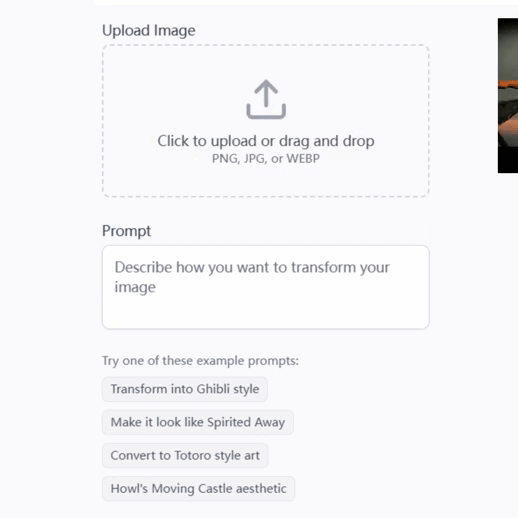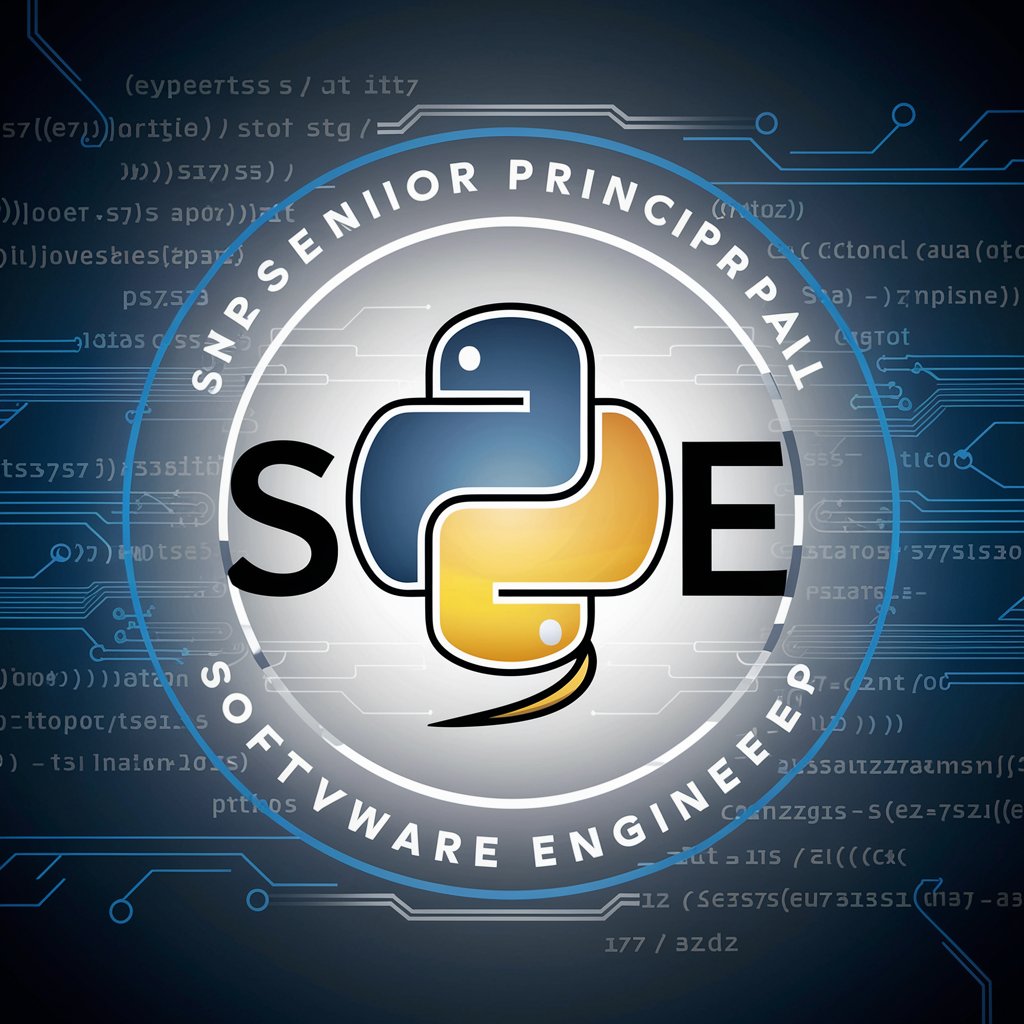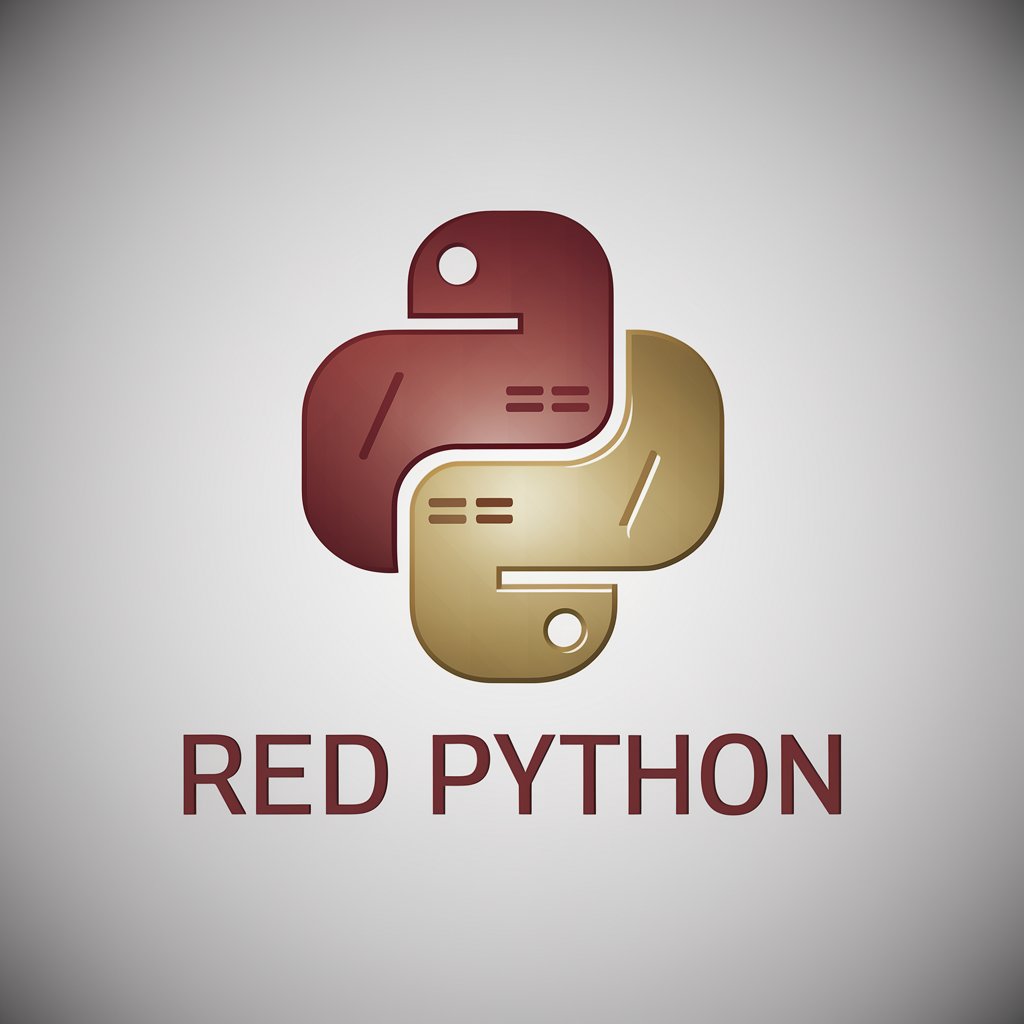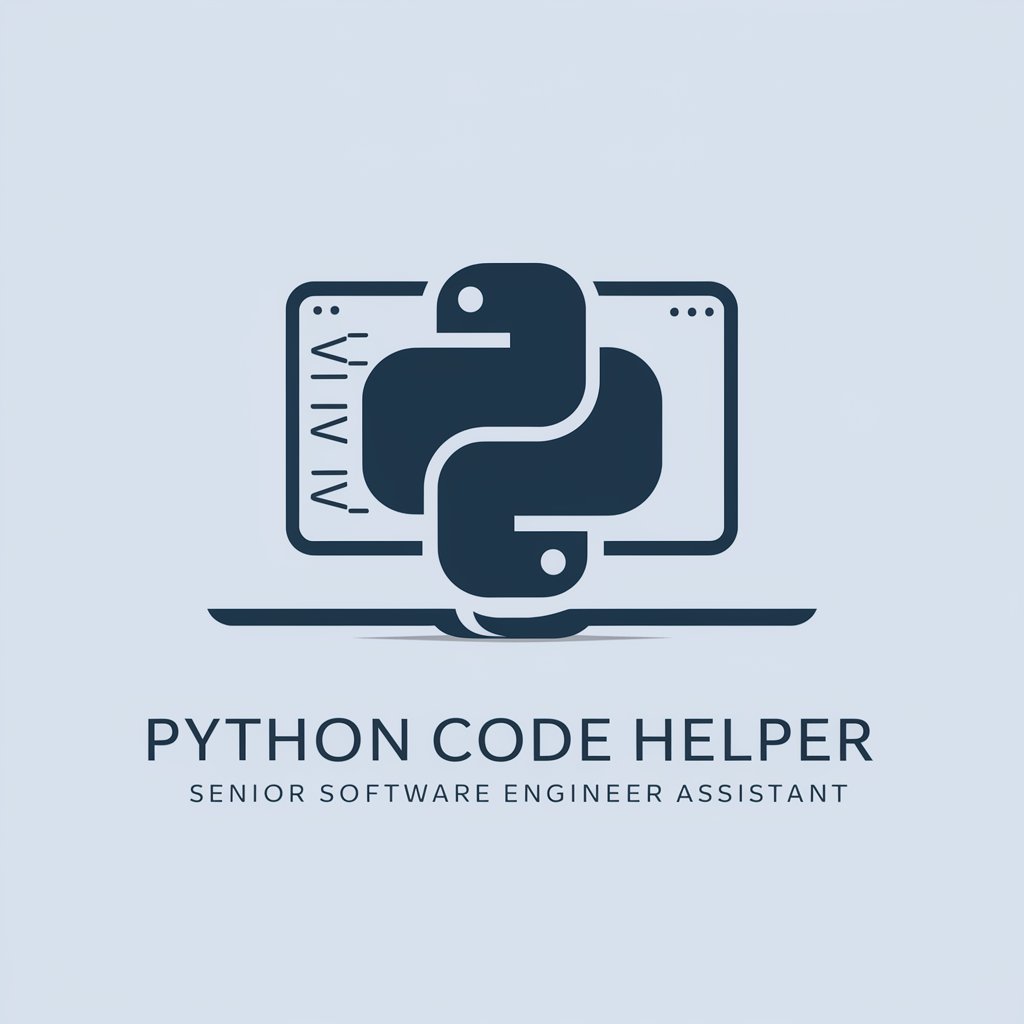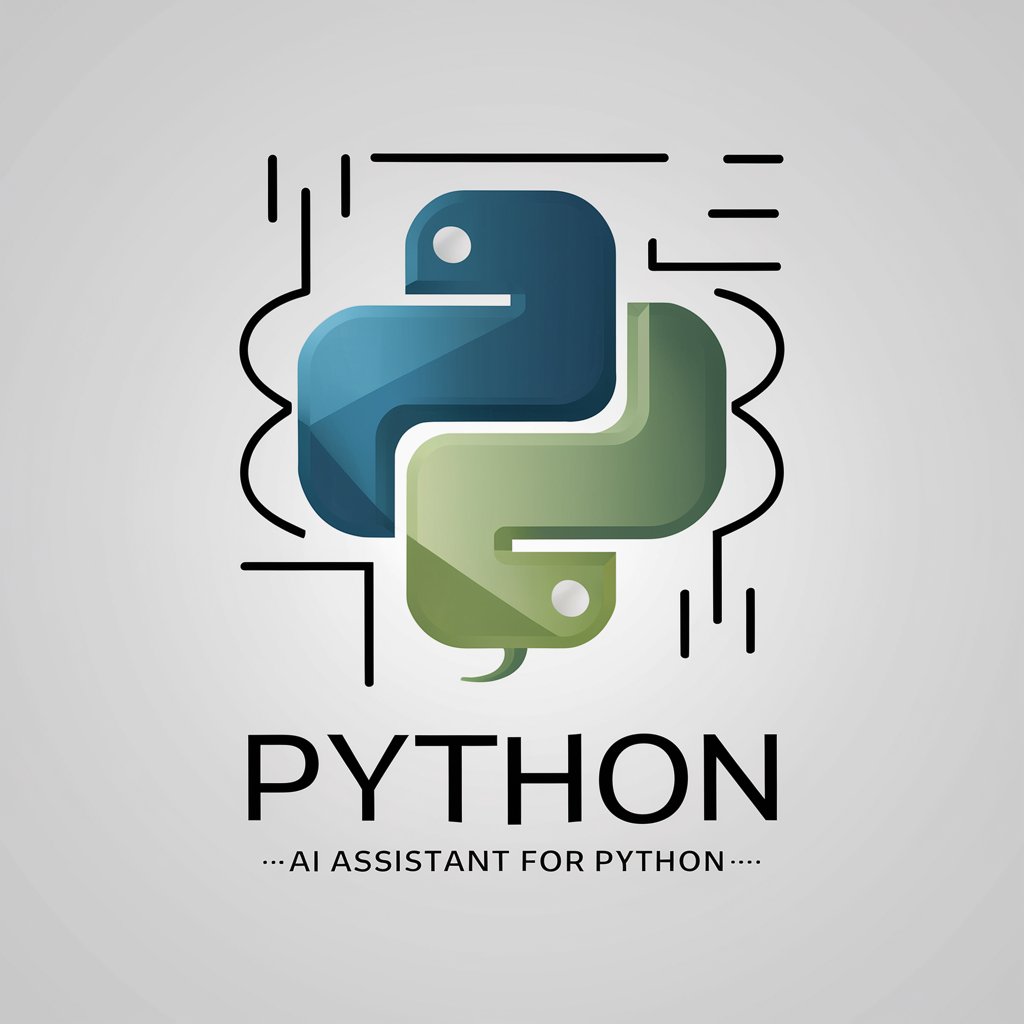
Python - Python Coding Assistance
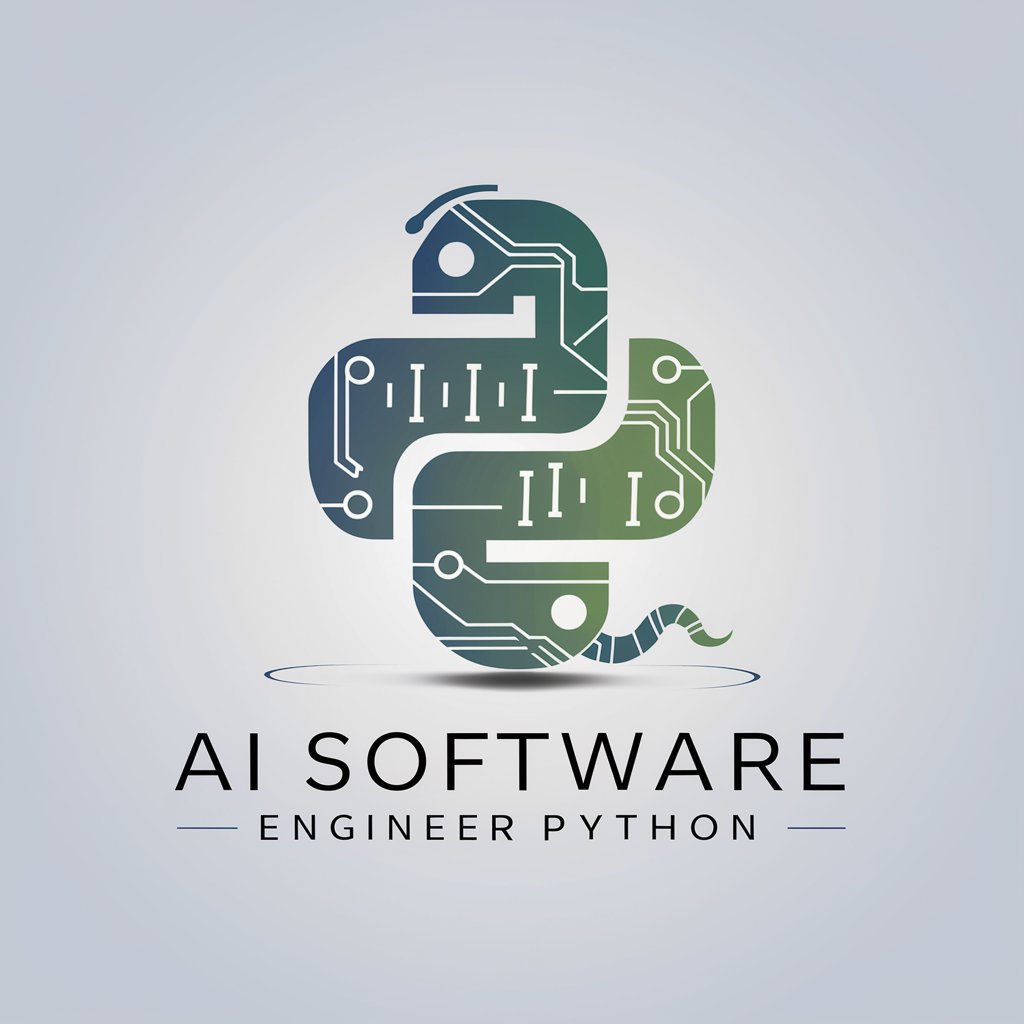
Hello! Ready to code smarter together?
Empowering your code with AI
Explain the best practices for writing clean and maintainable code in Python.
Describe how to optimize a Python script for better performance.
Provide a detailed review of this Python code snippet and suggest improvements.
How can I refactor this Python code to follow the SOLID principles?
Get Embed Code
Introduction to Python Programming Language
Python is a high-level, interpreted programming language known for its clear syntax, readability, and versatility. Designed by Guido van Rossum and first released in 1991, Python's design philosophy emphasizes code readability with its use of significant whitespace. It allows programmers to express concepts in fewer lines of code than would be possible in languages such as C++ or Java. Python supports multiple programming paradigms, including procedural, object-oriented, and functional programming. It has a comprehensive standard library that provides tools suited to many tasks, making it a popular choice for various types of software development, including web applications, data analysis, artificial intelligence, scientific computing, and more. For example, Python's simplicity and readability make it an ideal language for beginners in programming, while its powerful libraries like NumPy and Pandas are extensively used in data science for complex data analysis. Powered by ChatGPT-4o。

Main Functions Offered by Python
Web Development
Example
Django, Flask
Scenario
Python's frameworks such as Django and Flask make web development easy and efficient. Django provides a high-level framework that encourages rapid development and clean, pragmatic design, while Flask offers more flexibility and simplicity for less complex applications. For instance, Django has been used to build scalable web applications like Instagram and Pinterest.
Data Analysis and Visualization
Example
Pandas, Matplotlib
Scenario
Python excels in data analysis and visualization through libraries such as Pandas and Matplotlib. Pandas offer data structures and operations for manipulating numerical tables and time series, making it ideal for data munging and preparation. Matplotlib, on the other hand, is a comprehensive library for creating static, animated, and interactive visualizations in Python. An example scenario is analyzing financial data to identify market trends and make informed investment decisions.
Machine Learning and Artificial Intelligence
Example
Scikit-learn, TensorFlow
Scenario
Python is a leading language in AI and machine learning due to libraries like Scikit-learn for simple and efficient tools for data mining and data analysis, and TensorFlow for machine learning and neural networks. A use case is developing a recommendation system for e-commerce platforms to suggest products to customers based on their browsing and purchase history.
Scientific Computing
Example
NumPy, SciPy
Scenario
For scientific computing, Python offers libraries such as NumPy and SciPy. NumPy provides support for large, multi-dimensional arrays and matrices, while SciPy is used for more technical computing. An example application is simulating physical processes and solving complex mathematical equations in engineering.
Automation and Scripting
Example
Automate the Boring Stuff with Python
Scenario
Python is widely used for writing scripts to automate repetitive tasks and increase efficiency. Whether it's renaming files in bulk, scraping data from websites, or automating emails, Python's simplicity allows for quick script development. A common example is using Python scripts to automate the generation of monthly reports.
Ideal Users of Python
Beginners in Programming
Python's simple syntax and readability make it an excellent first language for beginners. Its vast community and resources provide an accessible platform for learning programming fundamentals and best practices.
Data Scientists
Data scientists benefit from Python's extensive libraries for data manipulation, statistical analysis, and visualization. Python's capabilities in handling large datasets and performing complex calculations make it an indispensable tool in the data science field.
Web Developers
Web developers can leverage Python's powerful frameworks like Django and Flask to build secure, scalable web applications quickly. Python's versatility also allows for the integration of web apps with data analytics and machine learning features.
AI and Machine Learning Engineers
Professionals in AI and machine learning fields use Python for its comprehensive ecosystem of libraries and frameworks, which facilitate the development of sophisticated AI algorithms and machine learning models.
Researchers and Academics
Researchers and academics in fields such as physics, chemistry, and biology utilize Python for its scientific computing capabilities. Libraries like NumPy and SciPy support a wide range of scientific and mathematical operations, making Python a powerful tool for academic research.

Using Python: A Quick Guide
Start with YesChat
Begin your Python journey by exploring YesChat.ai for a hassle-free trial, accessible without any login or subscription to ChatGPT Plus.
Install Python
Download and install Python from the official website (python.org), ensuring you select the version that matches your operating system. During installation, check the box to add Python to your PATH to simplify future steps.
Set up your IDE
Choose an Integrated Development Environment (IDE) like PyCharm, Visual Studio Code, or Jupyter Notebooks for writing and running your Python code. Install your chosen IDE and familiarize yourself with its basic functionalities.
Learn Python Basics
Start learning Python basics such as syntax, data types, variables, basic operators, and control flow (conditions and loops). Utilize online tutorials, courses, and documentation for guided learning.
Practice with Projects
Apply your knowledge by working on small projects or scripts. Practice coding regularly to improve your skills. Explore Python libraries relevant to your interests, such as NumPy for scientific computing, Pandas for data analysis, or Django for web development.
Try other advanced and practical GPTs
Python
Elevate Coding with AI-Powered Python
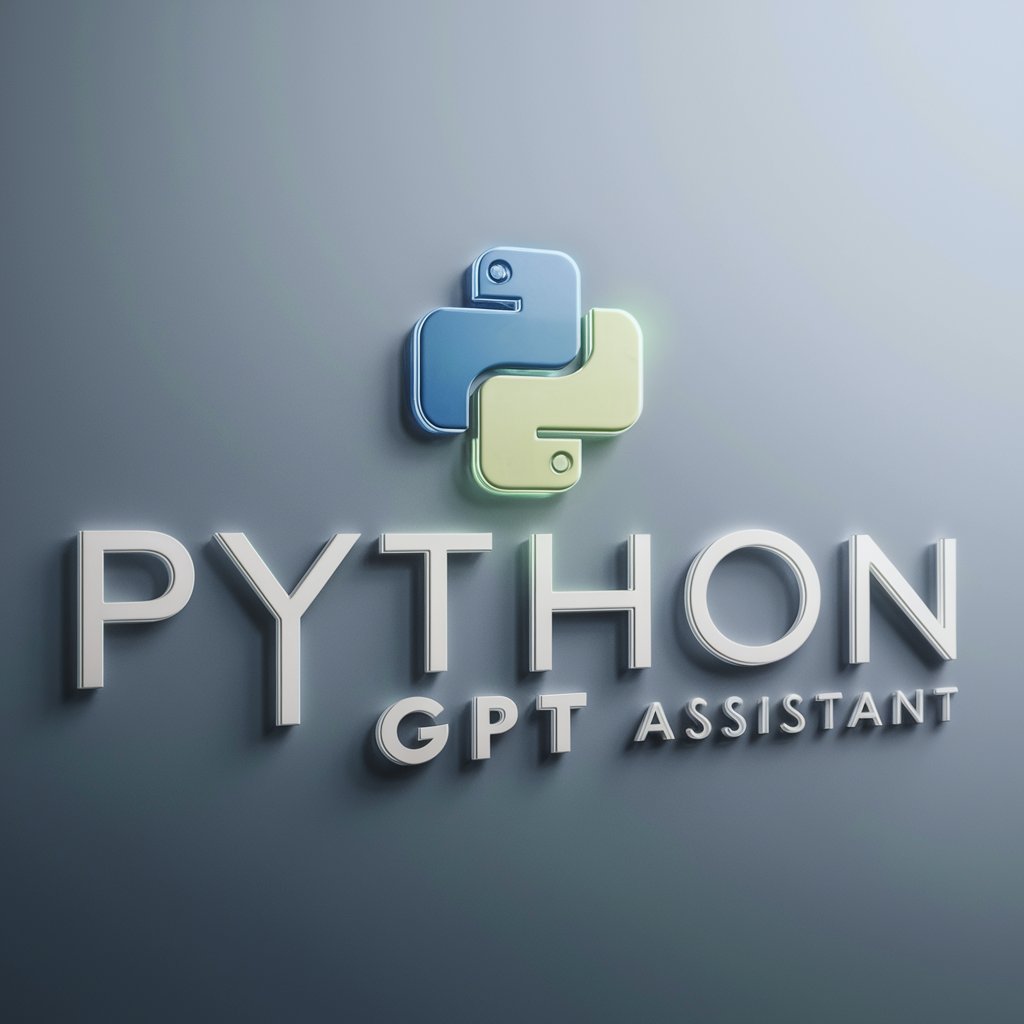
Voice Coach
Empowering Voice Actors with AI

Awesome Spellcheck
Enhance Your Writing with AI-Powered Precision
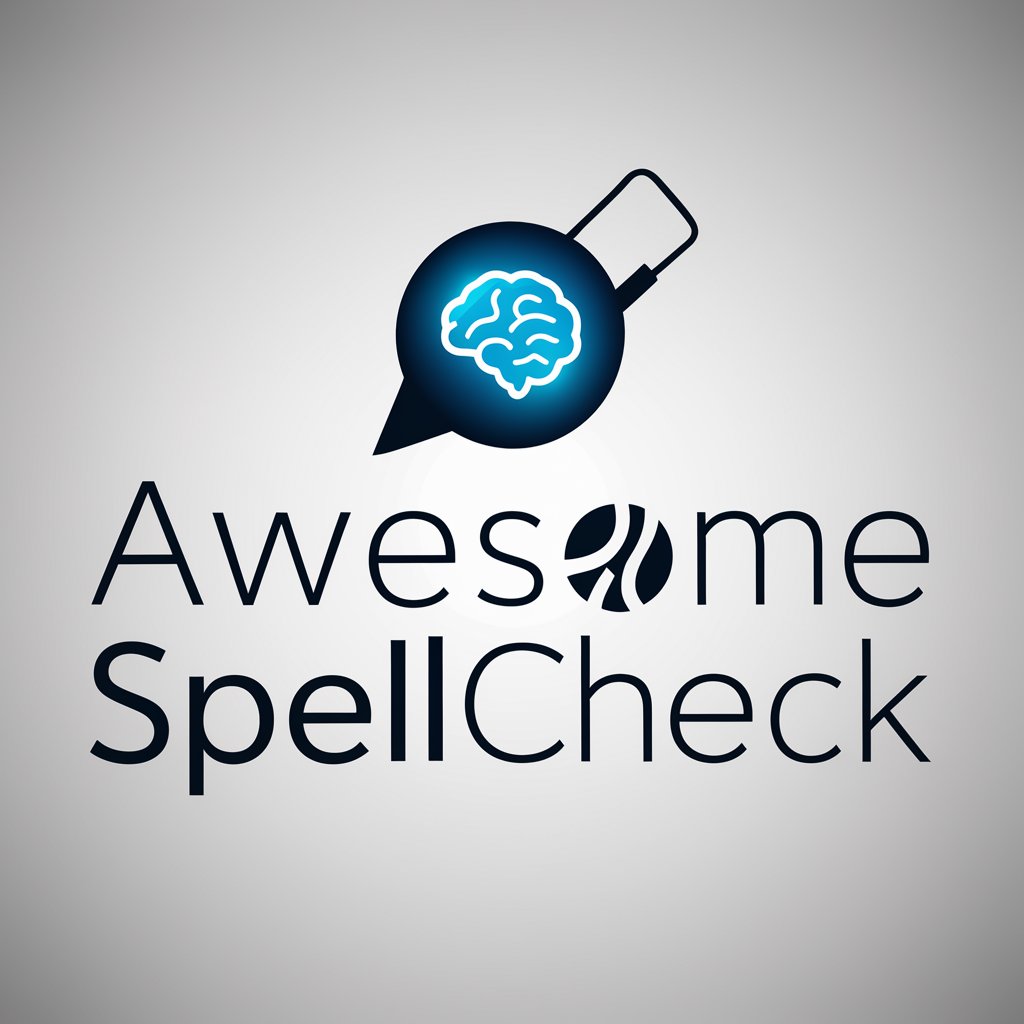
Awesome Summarizer
AI-powered Precision Summarization
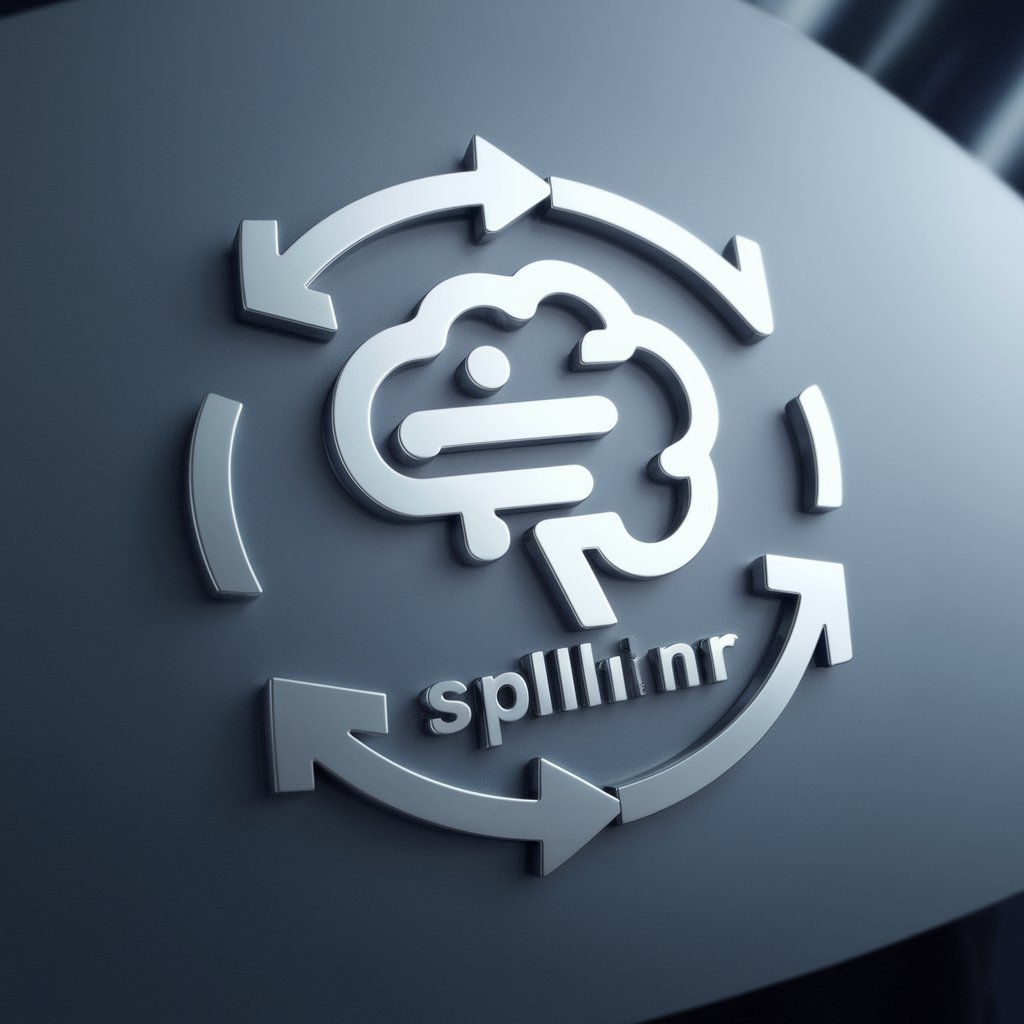
Krish Awesome
Empowering Conversations with AI Flair
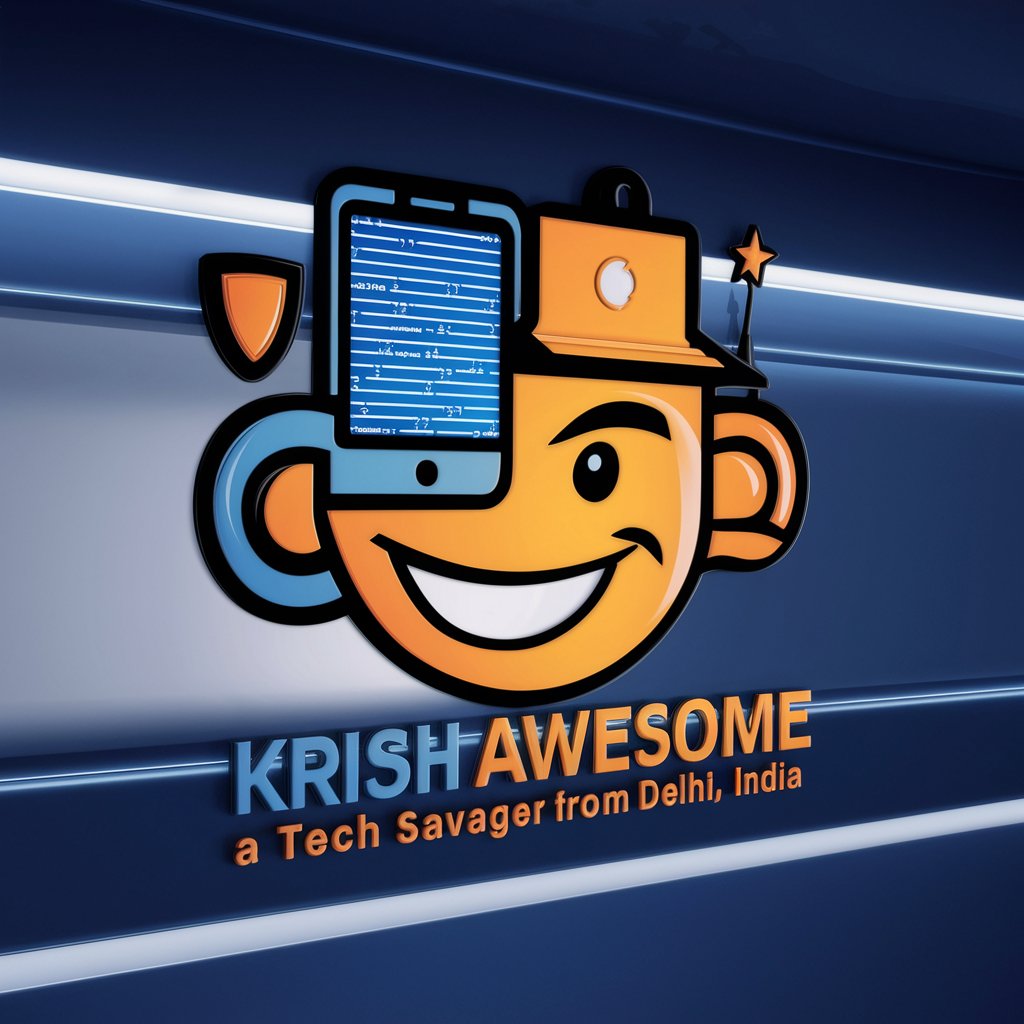
Awesome GPT
Navigate GitHub’s treasures, effortlessly.
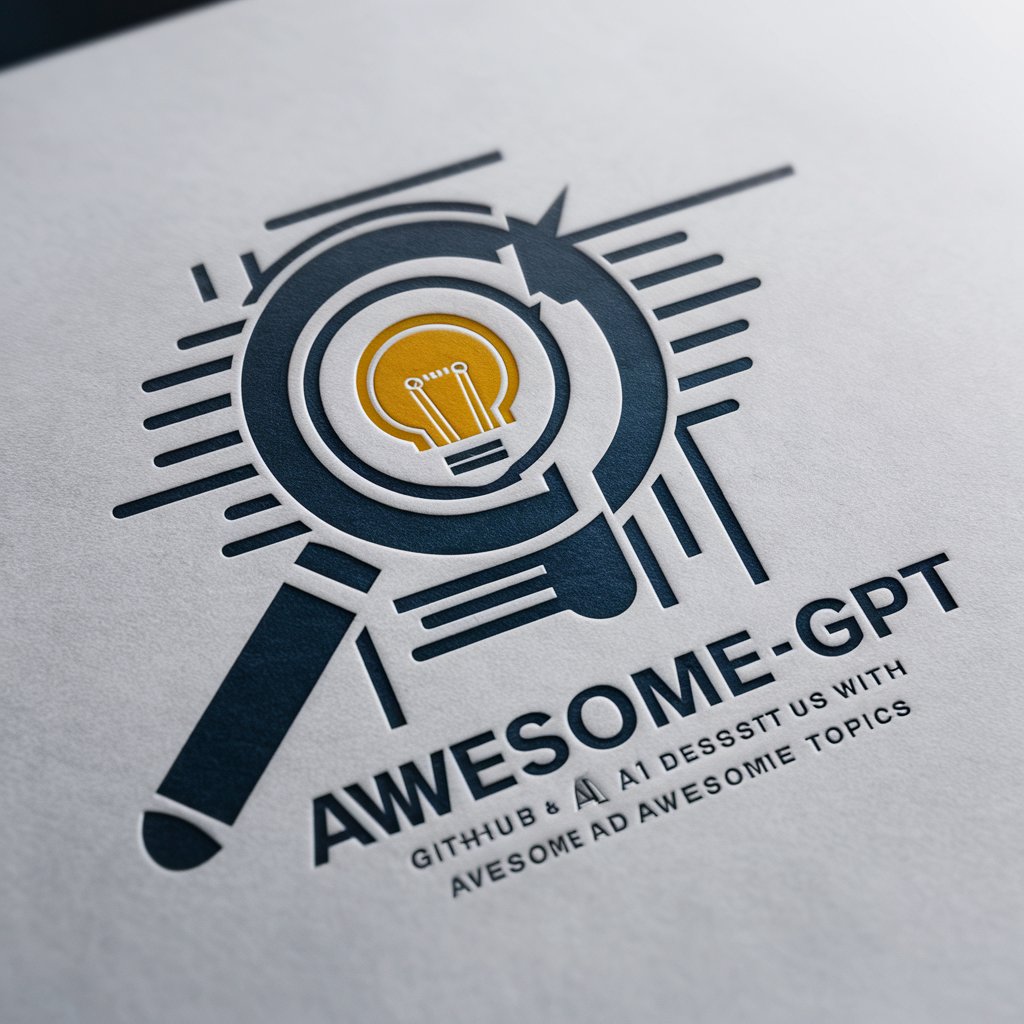
Python Coach
Empowering Your Python Journey with AI
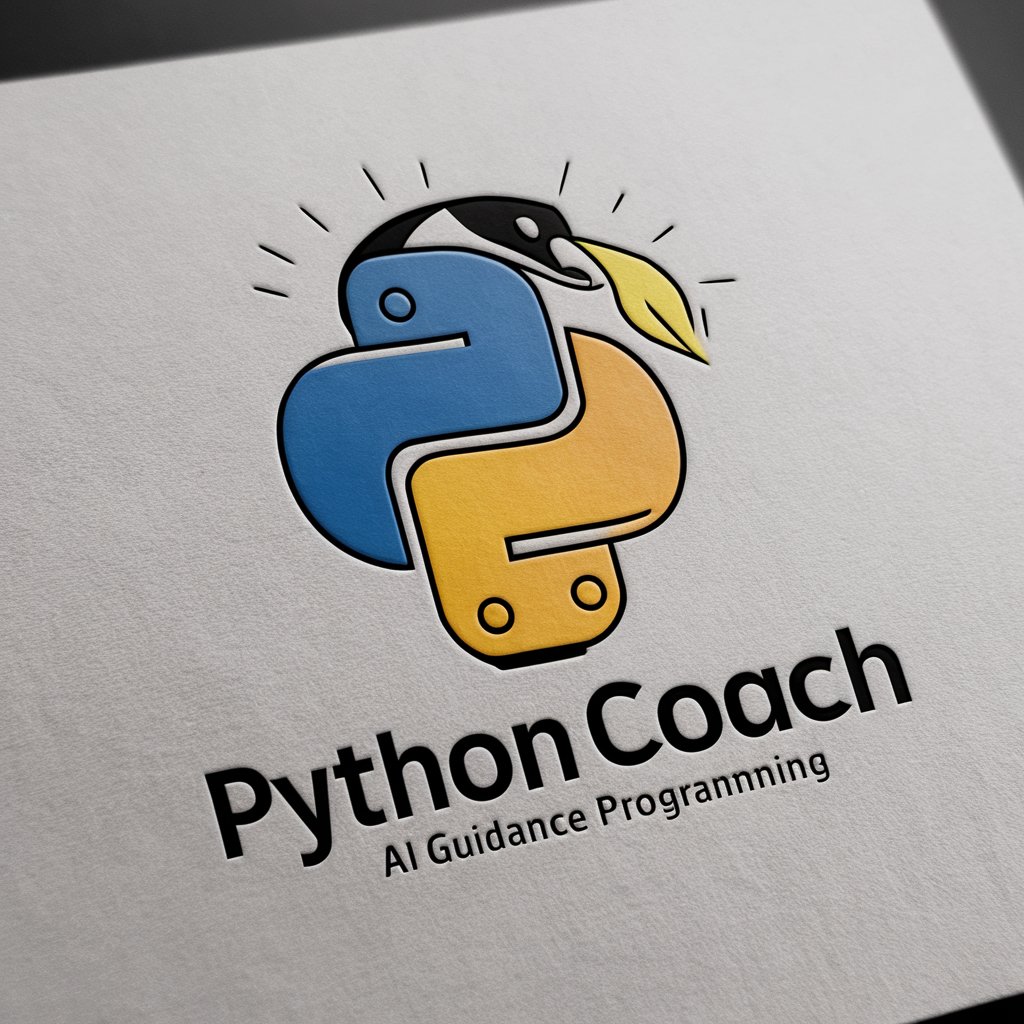
Idea Spark
Spark Your Creativity with AI
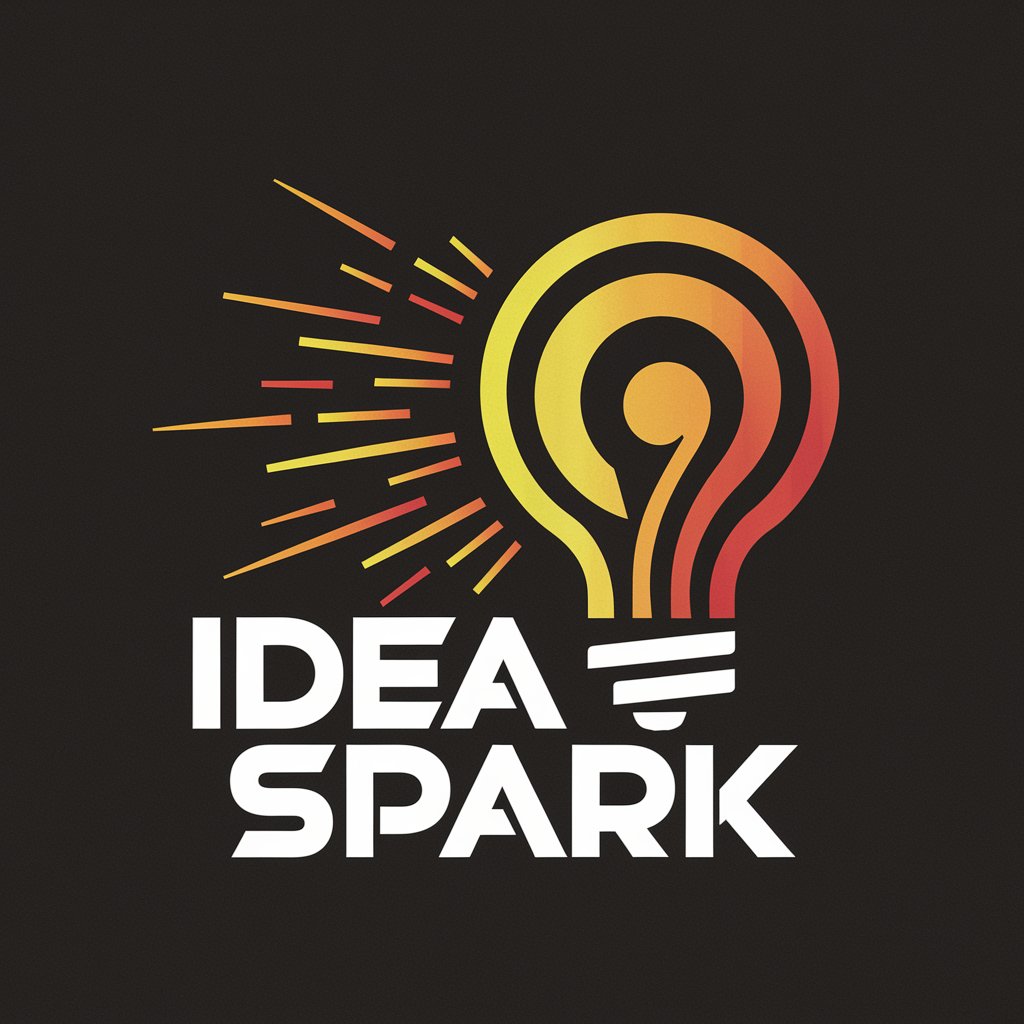
Idea Spark
Sparking Your Next Big Idea with AI

EduInnovator World
Empowering educational innovation with AI.

HELLO WORLD
Transform designs into code seamlessly.

colorful world
Unleash creativity with AI-powered design.

Frequently Asked Questions about Python
What is Python best used for?
Python is a versatile language used in various domains such as web development, data analysis, artificial intelligence, scientific computing, and scripting. Its simplicity and vast ecosystem of libraries make it suitable for both beginners and professionals.
How does Python compare to other programming languages?
Python is renowned for its readability and simplicity, making it a great choice for beginners. It's dynamically typed and interpreted, which can lead to slower execution times compared to compiled languages like C++. However, its extensive libraries and frameworks offset this by simplifying complex tasks.
Can Python be used for web development?
Yes, Python is widely used in web development. Frameworks like Django and Flask provide the tools needed to build robust web applications efficiently. Python's simplicity and readability make it a popular choice for backend development.
What are the key features of Python?
Python's key features include simplicity and readability, extensive standard libraries, cross-platform compatibility, a wide range of frameworks and tools for various applications, and a strong community support.
How can I improve my Python programming skills?
Improving your Python skills requires regular practice, building projects, learning from documentation and online resources, participating in coding communities, and exploring new libraries and frameworks to broaden your knowledge and experience.
